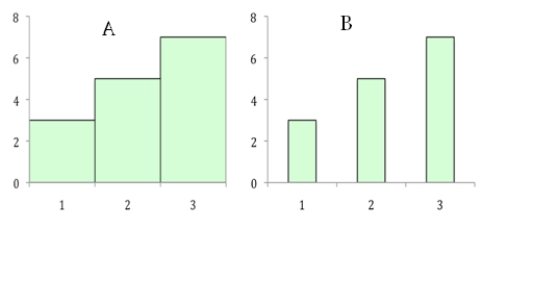Deck 2: Summarizing Data: Frequency Distributions in Tables and Graphs
Question
Question
Question
Question
Question
Question
Question
Question
Question
Question
Question
Question
Question
Question
Question
Question
Question
Question
Question
Question
Question
Question
Question
Question
Question
Question
Question
Question
Question
Question
Question
Question
Question
Question
Question
Question
Question
Question
Question
Question
Question
Question
Question
Question
Question
Question
Question
Question
Question
Question
Question
Question
Question
Question
Question
Question
Question
Question
Question
Question
Question
Question
Question
Question
Question
Question
Question
Question
Question
Question
Question
Question
Question
Question
Question
Question
Question
Question
Question
Question

Unlock Deck
Sign up to unlock the cards in this deck!
Unlock Deck
Unlock Deck
1/80
Play
Full screen (f)
Deck 2: Summarizing Data: Frequency Distributions in Tables and Graphs
1
As a general rule,a simple frequency distribution should have between
A)3 and 6 intervals
B)5 and 10 intervals
C)8 and 12 intervals
D)5 and 20 intervals
A)3 and 6 intervals
B)5 and 10 intervals
C)8 and 12 intervals
D)5 and 20 intervals
D
2
Grouped data are distributed into ________,whereas ungrouped data are distributed into ________.
A)intervals;statistics
B)statistics;intervals
C)intervals;categories
D)categories;intervals
A)intervals;statistics
B)statistics;intervals
C)intervals;categories
D)categories;intervals
C
3
Fill in the missing values for A and B in this frequency distribution table: 
A)A = 3.2,B = 13
B)A = 3.1,B = 14
C)A = 3.3,B = 13
D)There is not enough information to complete this table.

A)A = 3.2,B = 13
B)A = 3.1,B = 14
C)A = 3.3,B = 13
D)There is not enough information to complete this table.
A
4
The range of scores in each interval of a grouped frequency distribution is called the
A)simple frequency
B)interval width
C)real range
D)grouped data
A)simple frequency
B)interval width
C)real range
D)grouped data

Unlock Deck
Unlock for access to all 80 flashcards in this deck.
Unlock Deck
k this deck
5
Which of the following is NOT a rule for constructing a simple frequency distribution?
A)The number of intervals should equal the number of values measured.
B)Each interval is equidistant.
C)No class interval overlaps.
D)Values are rounded to the same degree of accuracy measured in the original data.
A)The number of intervals should equal the number of values measured.
B)Each interval is equidistant.
C)No class interval overlaps.
D)Values are rounded to the same degree of accuracy measured in the original data.

Unlock Deck
Unlock for access to all 80 flashcards in this deck.
Unlock Deck
k this deck
6
The following frequency distribution is an example of 
A)grouped data
B)ungrouped data
C)categorical data
D)both B and C

A)grouped data
B)ungrouped data
C)categorical data
D)both B and C

Unlock Deck
Unlock for access to all 80 flashcards in this deck.
Unlock Deck
k this deck
7
A researcher distributes frequencies into the following classes: absent,tardy,present.What type of data are distributed?
A)nominal data
B)qualitative data
C)ungrouped data
D)all of the above
A)nominal data
B)qualitative data
C)ungrouped data
D)all of the above

Unlock Deck
Unlock for access to all 80 flashcards in this deck.
Unlock Deck
k this deck
8
A researcher summarizes a set of frequency data into five intervals.This is an example of a frequency distribution for
A)ungrouped data
B)grouped data
C)inferential statistics
D)population parameters
A)ungrouped data
B)grouped data
C)inferential statistics
D)population parameters

Unlock Deck
Unlock for access to all 80 flashcards in this deck.
Unlock Deck
k this deck
9
To determine the interval width,we divide the ________ by the number of intervals.
A)observed range
B)exclusive range
C)real range
D)all of the above
A)observed range
B)exclusive range
C)real range
D)all of the above

Unlock Deck
Unlock for access to all 80 flashcards in this deck.
Unlock Deck
k this deck
10
When cumulating frequencies from the bottom up,the data are discussed in terms of
A)at most
B)less than
C)at or below
D)all of the above
A)at most
B)less than
C)at or below
D)all of the above

Unlock Deck
Unlock for access to all 80 flashcards in this deck.
Unlock Deck
k this deck
11
Grouped data are to ungrouped data as
A)quantitative is to qualitative
B)qualitative is to quantitative
C)inferential is to descriptive
D)descriptive is to inferential
A)quantitative is to qualitative
B)qualitative is to quantitative
C)inferential is to descriptive
D)descriptive is to inferential

Unlock Deck
Unlock for access to all 80 flashcards in this deck.
Unlock Deck
k this deck
12
Which of the following requires the calculation of a real range?
A)frequency distributions for categorical
B)frequency distributions for ungrouped data
C)frequency distributions for grouped data
D)frequency distributions that do not use real data
A)frequency distributions for categorical
B)frequency distributions for ungrouped data
C)frequency distributions for grouped data
D)frequency distributions that do not use real data

Unlock Deck
Unlock for access to all 80 flashcards in this deck.
Unlock Deck
k this deck
13
A researcher distributes frequencies into the following intervals: 3-6,7-10,11-15,16-18,19-22,and 23-26.What is wrong with this frequency distribution?
A)The interval width is too small.
B)The interval width is unequal.
C)The first class interval does not begin at 0.
D)One interval is an open class.
A)The interval width is too small.
B)The interval width is unequal.
C)The first class interval does not begin at 0.
D)One interval is an open class.

Unlock Deck
Unlock for access to all 80 flashcards in this deck.
Unlock Deck
k this deck
14
Grouped data can be distributed
A)as a range of values
B)with upper and lower boundaries
C)into intervals
D)all of the above
A)as a range of values
B)with upper and lower boundaries
C)into intervals
D)all of the above

Unlock Deck
Unlock for access to all 80 flashcards in this deck.
Unlock Deck
k this deck
15
The three steps for constructing a simple frequency distribution are
A)find the observed range,find the interval width,and construct the frequency distribution
B)find the real range,count the scores,and construct the frequency distribution
C)find the real range,find the interval width,and construct the frequency distribution
D)all of the above
A)find the observed range,find the interval width,and construct the frequency distribution
B)find the real range,count the scores,and construct the frequency distribution
C)find the real range,find the interval width,and construct the frequency distribution
D)all of the above

Unlock Deck
Unlock for access to all 80 flashcards in this deck.
Unlock Deck
k this deck
16
A researcher distributes frequencies into the following intervals: 1-10,11-20,21-30,31-40,41-50,and 51 and above.What is wrong with this frequency distribution?
A)The interval width is too small.
B)The interval width is unequal.
C)The class intervals overlap.
D)One interval is an open class.
A)The interval width is too small.
B)The interval width is unequal.
C)The class intervals overlap.
D)One interval is an open class.

Unlock Deck
Unlock for access to all 80 flashcards in this deck.
Unlock Deck
k this deck
17
State the problem with this simple frequency distribution. 
A)The interval width is too small.
B)The interval width is unequal.
C)The class intervals overlap.
D)The number of intervals is too small.

A)The interval width is too small.
B)The interval width is unequal.
C)The class intervals overlap.
D)The number of intervals is too small.

Unlock Deck
Unlock for access to all 80 flashcards in this deck.
Unlock Deck
k this deck
18
Ungrouped data can be distributed as
A)intervals
B)categories
C)upper and lower boundaries
D)all of the above
A)intervals
B)categories
C)upper and lower boundaries
D)all of the above

Unlock Deck
Unlock for access to all 80 flashcards in this deck.
Unlock Deck
k this deck
19
A simple frequency distribution
A)can be used to summarize grouped data
B)can be used to summarize ungrouped data
C)summarizes the frequency of scores in a given category or range
D)all of the above
A)can be used to summarize grouped data
B)can be used to summarize ungrouped data
C)summarizes the frequency of scores in a given category or range
D)all of the above

Unlock Deck
Unlock for access to all 80 flashcards in this deck.
Unlock Deck
k this deck
20
When cumulating frequencies from the top down,the data are discussed in terms of
A)greater than
B)at or above
C)at least
D)all of the above
A)greater than
B)at or above
C)at least
D)all of the above

Unlock Deck
Unlock for access to all 80 flashcards in this deck.
Unlock Deck
k this deck
21
What is the percentile point at the 90th percentile in the following distribution? 
A)9
B)10
C)9.5
D)10.5

A)9
B)10
C)9.5
D)10.5

Unlock Deck
Unlock for access to all 80 flashcards in this deck.
Unlock Deck
k this deck
22
A percentile point is
A)the value of a score on a measurement scale below which a specified percentage of scores in a distribution fall
B)a summary display that distributes the sum of percentages across a series of intervals
C)an interval with no defined upper or lower boundary
D)the range of values contained in each interval of a grouped frequency distribution
A)the value of a score on a measurement scale below which a specified percentage of scores in a distribution fall
B)a summary display that distributes the sum of percentages across a series of intervals
C)an interval with no defined upper or lower boundary
D)the range of values contained in each interval of a grouped frequency distribution

Unlock Deck
Unlock for access to all 80 flashcards in this deck.
Unlock Deck
k this deck
23
What is the corresponding percentile of a percentile point
A)the score
B)the frequency
C)the percentile rank
D)always 100%
A)the score
B)the frequency
C)the percentile rank
D)always 100%

Unlock Deck
Unlock for access to all 80 flashcards in this deck.
Unlock Deck
k this deck
24
A ________ is plotted at the midpoint of each interval,whereas a ________ is plotted at the upper boundary of each interval.
A)histogram;bar chart
B)frequency polygon;histogram
C)frequency polygon;ogive
D)histogram;frequency polygon
A)histogram;bar chart
B)frequency polygon;histogram
C)frequency polygon;ogive
D)histogram;frequency polygon

Unlock Deck
Unlock for access to all 80 flashcards in this deck.
Unlock Deck
k this deck
25
A researcher finds that 12% of participants make between 3-5 visits to a physician each year.What are the real limits for this interval?
A)3-5
B)2.5-5.5
C)2.5-3.5
D)equal to the sum of the products for the previous interval
A)3-5
B)2.5-5.5
C)2.5-3.5
D)equal to the sum of the products for the previous interval

Unlock Deck
Unlock for access to all 80 flashcards in this deck.
Unlock Deck
k this deck
26
A cumulative percentage summary that indicates the percentage of scores at or below a given value is called a
A)relative percentage
B)relative frequency
C)percentile rank
D)cumulative frequency
A)relative percentage
B)relative frequency
C)percentile rank
D)cumulative frequency

Unlock Deck
Unlock for access to all 80 flashcards in this deck.
Unlock Deck
k this deck
27
A relative frequency distribution is appropriate when
A)there are large frequency counts in each interval
B)the data are grouped into relatively small intervals
C)there are open classes
D)the interval width is too large
A)there are large frequency counts in each interval
B)the data are grouped into relatively small intervals
C)there are open classes
D)the interval width is too large

Unlock Deck
Unlock for access to all 80 flashcards in this deck.
Unlock Deck
k this deck
28
A percentile is also called a:
A)score
B)range
C)distribution
D)percentile point
A)score
B)range
C)distribution
D)percentile point

Unlock Deck
Unlock for access to all 80 flashcards in this deck.
Unlock Deck
k this deck
29
A graphical display for grouped frequency distributions with continuous data is called a
A)histogram
B)bar chart
C)pie chart
D)scatter gram
A)histogram
B)bar chart
C)pie chart
D)scatter gram

Unlock Deck
Unlock for access to all 80 flashcards in this deck.
Unlock Deck
k this deck
30
The following is a simple frequency distribution table.If we convert this frequency distribution to relative percentages,which of the following gives the corresponding percentages in each interval listed from the top down. 
A)20%,33%,50%,67%,100%
B)0.2,0.13,0.17,0.33,0.17
C)20%,13%,17%,33%,17%
D)6,10,15,25,30

A)20%,33%,50%,67%,100%
B)0.2,0.13,0.17,0.33,0.17
C)20%,13%,17%,33%,17%
D)6,10,15,25,30

Unlock Deck
Unlock for access to all 80 flashcards in this deck.
Unlock Deck
k this deck
31
A researcher reports that 12 persons in a sample of 60 reported getting between 4 and 6 hours of sleep per night.What is the relative percentage for this interval?
A)24%
B)22%
C)20%
D)There is not enough information to answer this question.
A)24%
B)22%
C)20%
D)There is not enough information to answer this question.

Unlock Deck
Unlock for access to all 80 flashcards in this deck.
Unlock Deck
k this deck
32
The ________ is the percentage of scores with values that fall below a specified score in a distribution,is called the:
A)percentile rank
B)interval
C)relative frequency
D)percentile point
A)percentile rank
B)interval
C)relative frequency
D)percentile point

Unlock Deck
Unlock for access to all 80 flashcards in this deck.
Unlock Deck
k this deck
33
A psychologist wants to know how many of her clients continue with therapy for at least 12 days.If she constructs a frequency distribution for these data,what type of distribution would be most appropriate to answer her question?
A)a cumulative frequency distribution from the bottom up
B)a cumulative frequency distribution from the top down
C)a simple frequency distribution
D)a relative frequency distribution
A)a cumulative frequency distribution from the bottom up
B)a cumulative frequency distribution from the top down
C)a simple frequency distribution
D)a relative frequency distribution

Unlock Deck
Unlock for access to all 80 flashcards in this deck.
Unlock Deck
k this deck
34
A researcher wants to determine how many participants will take less than 24 seconds to complete a cognitive performance task.If he constructs a frequency distribution for these data,what type of distribution would be most appropriate to answer his question?
A)a simple frequency distribution
B)a relative frequency distribution
C)a cumulative frequency distribution from the bottom up
D)a cumulative frequency distribution from the top down
A)a simple frequency distribution
B)a relative frequency distribution
C)a cumulative frequency distribution from the bottom up
D)a cumulative frequency distribution from the top down

Unlock Deck
Unlock for access to all 80 flashcards in this deck.
Unlock Deck
k this deck
35
A student scores in the 80th percentile on an exam.What does this mean in comparison to all other students?
A)the student scored higher than 80% of all others who took the exam
B)the student scored worse than 80% of all others who took the exam
C)Of all those who took the exam,only 80% of them completed it
D)the student would score the same grade on the exam 80% of the time
A)the student scored higher than 80% of all others who took the exam
B)the student scored worse than 80% of all others who took the exam
C)Of all those who took the exam,only 80% of them completed it
D)the student would score the same grade on the exam 80% of the time

Unlock Deck
Unlock for access to all 80 flashcards in this deck.
Unlock Deck
k this deck
36
What is the percentile point at the 50th percentile for the following distribution? 
A)21
B)23.5
C)25
D)25.5

A)21
B)23.5
C)25
D)25.5

Unlock Deck
Unlock for access to all 80 flashcards in this deck.
Unlock Deck
k this deck
37
The following is a simple frequency distribution table.Suppose we convert this table to a cumulative frequency distribution.The frequencies in each interval of the cumulative frequency distribution would be 
A)5,8,10,14,20 (top down summary)
B)6,10,12,15,20 (bottom up summary)
C)both A and B,depending on how the data were summarized
D)It is not possible to summarize the data using a cumulative frequency distribution.

A)5,8,10,14,20 (top down summary)
B)6,10,12,15,20 (bottom up summary)
C)both A and B,depending on how the data were summarized
D)It is not possible to summarize the data using a cumulative frequency distribution.

Unlock Deck
Unlock for access to all 80 flashcards in this deck.
Unlock Deck
k this deck
38
What is the percentile point at the 80th percentile in the following distribution? 
A)2
B)6
C)7
D)8

A)2
B)6
C)7
D)8

Unlock Deck
Unlock for access to all 80 flashcards in this deck.
Unlock Deck
k this deck
39
A percentile is
A)a percentile point
B)a value between -1 and +1
C)a raw score multiplied times 100
D)only used with ungrouped data
A)a percentile point
B)a value between -1 and +1
C)a raw score multiplied times 100
D)only used with ungrouped data

Unlock Deck
Unlock for access to all 80 flashcards in this deck.
Unlock Deck
k this deck
40
The sum of relative frequencies for each interval is _____.
A)1.00
B)100%
C)equal to the total number of scores in a distribution
D)both A and B
A)1.00
B)100%
C)equal to the total number of scores in a distribution
D)both A and B

Unlock Deck
Unlock for access to all 80 flashcards in this deck.
Unlock Deck
k this deck
41
Frequency distributions can be used to summarize both grouped and ungrouped data.

Unlock Deck
Unlock for access to all 80 flashcards in this deck.
Unlock Deck
k this deck
42
Which of the following is a type of graphical display used to summarize quantitative,continuous data?
A)histogram
B)frequency polygon
C)ogive
D)all of the above
A)histogram
B)frequency polygon
C)ogive
D)all of the above

Unlock Deck
Unlock for access to all 80 flashcards in this deck.
Unlock Deck
k this deck
43
An open class is permitted when outliers exist in the data.

Unlock Deck
Unlock for access to all 80 flashcards in this deck.
Unlock Deck
k this deck
44
In the stem-and-leaf display,each number to the right of the vertical line is referred to as a ________;the numbers to the left of the vertical line are called the ________.
A)stem;leaf
B)leaf;stem
C)digit;place
D)place;digit
A)stem;leaf
B)leaf;stem
C)digit;place
D)place;digit

Unlock Deck
Unlock for access to all 80 flashcards in this deck.
Unlock Deck
k this deck
45
A researcher measures the time (in seconds)that it takes children to complete a basic reading skills task.What type of graphical display would be most appropriate for summarizing the frequency of children falling into different intervals of time?
A)histogram
B)bar chart
C)scatter gram
D)all of the above
A)histogram
B)bar chart
C)scatter gram
D)all of the above

Unlock Deck
Unlock for access to all 80 flashcards in this deck.
Unlock Deck
k this deck
46
Which of the following is a type of graphical display used to summarize qualitative,discrete data?
A)bar chart
B)pie chart
C)histogram
D)both A and B
A)bar chart
B)pie chart
C)histogram
D)both A and B

Unlock Deck
Unlock for access to all 80 flashcards in this deck.
Unlock Deck
k this deck
47
The data should be ungrouped for the following data set: 6,7,7,7,7,7,7,8,8,8,9,9,9,6,6,6,8,and 7. ,

Unlock Deck
Unlock for access to all 80 flashcards in this deck.
Unlock Deck
k this deck
48
Grouped data are used to summarize quantitative data that are continuous or discrete.

Unlock Deck
Unlock for access to all 80 flashcards in this deck.
Unlock Deck
k this deck
49
The data should be grouped for the following data set: 0,0,0,2,2,1,1,2,2,2,1,0,0,0,0,2,2,1,1,1,2,1,2,2,0,0,1,and 2.

Unlock Deck
Unlock for access to all 80 flashcards in this deck.
Unlock Deck
k this deck
50
State the original data displayed in the following stem-and-leaf display. 
A)3,2,3,6,4,7,8,8,5,4,and 9
B)32,33,36,47,48,54,and 59
C)32,33,36,47,48,48,54,and 59
D)It is not possible to know the original data from this display.

A)3,2,3,6,4,7,8,8,5,4,and 9
B)32,33,36,47,48,54,and 59
C)32,33,36,47,48,48,54,and 59
D)It is not possible to know the original data from this display.

Unlock Deck
Unlock for access to all 80 flashcards in this deck.
Unlock Deck
k this deck
51
To construct a pie chart,first distribute the data as
A)cumulative percentages
B)relative percentages
C)cumulative frequencies
D)cumulative relative percentages
A)cumulative percentages
B)relative percentages
C)cumulative frequencies
D)cumulative relative percentages

Unlock Deck
Unlock for access to all 80 flashcards in this deck.
Unlock Deck
k this deck
52
Ungrouped data are always distributed in intervals.

Unlock Deck
Unlock for access to all 80 flashcards in this deck.
Unlock Deck
k this deck
53
Summarizing data in a table or graph can make it easier to see patterns in the data.

Unlock Deck
Unlock for access to all 80 flashcards in this deck.
Unlock Deck
k this deck
54
A researcher records the number of children at a local school from single-,divorced-,and married-parent homes.This frequency data would be best displayed as a
A)bar chart
B)frequency polygon
C)histogram
D)ogive
A)bar chart
B)frequency polygon
C)histogram
D)ogive

Unlock Deck
Unlock for access to all 80 flashcards in this deck.
Unlock Deck
k this deck
55
Frequency distributions summarize the average scores in a set of data.

Unlock Deck
Unlock for access to all 80 flashcards in this deck.
Unlock Deck
k this deck
56
A researcher measures the weight (in ounces)of newborn infants in the month of March.What type of graphical display would be most appropriate for summarizing the frequency of infants falling into different intervals of weight?
A)histogram
B)bar chart
C)scatter gram
D)all of the above
A)histogram
B)bar chart
C)scatter gram
D)all of the above

Unlock Deck
Unlock for access to all 80 flashcards in this deck.
Unlock Deck
k this deck
57
State the type of graphical display for Graph A and Graph B. 
A)A is a bar chart;B is a histogram.
B)B is a bar chart;A is a histogram.
C)Both graphs are bar charts.
D)Both graphs are histograms.

A)A is a bar chart;B is a histogram.
B)B is a bar chart;A is a histogram.
C)Both graphs are bar charts.
D)Both graphs are histograms.

Unlock Deck
Unlock for access to all 80 flashcards in this deck.
Unlock Deck
k this deck
58
Bar charts are a lot like histograms,except
A)the bars displayed in the graph do not touch
B)the bar chart summarizes quantitative data
C)the bar chart summarizes continuous data
D)all of the above
A)the bars displayed in the graph do not touch
B)the bar chart summarizes quantitative data
C)the bar chart summarizes continuous data
D)all of the above

Unlock Deck
Unlock for access to all 80 flashcards in this deck.
Unlock Deck
k this deck
59
The midpoint of a given interval is the average of the upper and lower boundaries for that interval.

Unlock Deck
Unlock for access to all 80 flashcards in this deck.
Unlock Deck
k this deck
60
The real range is the difference between the largest value and smallest value in a data set.

Unlock Deck
Unlock for access to all 80 flashcards in this deck.
Unlock Deck
k this deck
61
A frequency polygon,but not an ogive can be used to summarize cumulative percent distributions.

Unlock Deck
Unlock for access to all 80 flashcards in this deck.
Unlock Deck
k this deck
62
In a bar chart,each class or category is represented by a rectangle,and each rectangle is separated (does not touch)along the x-axis.

Unlock Deck
Unlock for access to all 80 flashcards in this deck.
Unlock Deck
k this deck
63
A percentile rank is a cumulative percentage distribution summed from the bottom up.

Unlock Deck
Unlock for access to all 80 flashcards in this deck.
Unlock Deck
k this deck
64
A relative frequency is typically used with smaller,but not larger,data sets.

Unlock Deck
Unlock for access to all 80 flashcards in this deck.
Unlock Deck
k this deck
65
A stem-and-leaf display retains the value of each data point.

Unlock Deck
Unlock for access to all 80 flashcards in this deck.
Unlock Deck
k this deck
66
Percentages range from 0% to 100% and can never be negative.

Unlock Deck
Unlock for access to all 80 flashcards in this deck.
Unlock Deck
k this deck
67
Twelve percent of students scored at or below a failing grade on an exam.A percentile rank distribution would be appropriate to summarize this outcome.

Unlock Deck
Unlock for access to all 80 flashcards in this deck.
Unlock Deck
k this deck
68
A cumulative frequency distribution is the sum of frequencies across a series of intervals.

Unlock Deck
Unlock for access to all 80 flashcards in this deck.
Unlock Deck
k this deck
69
The corresponding percentile of a given percentile point is the percentile rank of that score.

Unlock Deck
Unlock for access to all 80 flashcards in this deck.
Unlock Deck
k this deck
70
Cumulative percent data can be summarized using an ogive.

Unlock Deck
Unlock for access to all 80 flashcards in this deck.
Unlock Deck
k this deck
71
To summarize relative percent data,a pie chart would be a good choice to display the data.

Unlock Deck
Unlock for access to all 80 flashcards in this deck.
Unlock Deck
k this deck
72
The percentile rank of a score is the percentage of scores with values that fall below a specified score in a distribution.

Unlock Deck
Unlock for access to all 80 flashcards in this deck.
Unlock Deck
k this deck
73
A histogram is used to summarize grouped data.

Unlock Deck
Unlock for access to all 80 flashcards in this deck.
Unlock Deck
k this deck
74
A histogram is basically a bar chart where the bars do not touch.

Unlock Deck
Unlock for access to all 80 flashcards in this deck.
Unlock Deck
k this deck
75
Whether you cumulate a frequency distribution from the bottom up or the top down depends on how you want to discuss the data.

Unlock Deck
Unlock for access to all 80 flashcards in this deck.
Unlock Deck
k this deck
76
The sum of the frequencies for a distribution is 100.This means that fewer than 100 persons were counted.

Unlock Deck
Unlock for access to all 80 flashcards in this deck.
Unlock Deck
k this deck
77
A frequency polygon is a dot-and-line graph where the dot is the upper class boundary of each interval,and the line connects each dot.

Unlock Deck
Unlock for access to all 80 flashcards in this deck.
Unlock Deck
k this deck
78
Relative frequencies sum to the total frequency count.

Unlock Deck
Unlock for access to all 80 flashcards in this deck.
Unlock Deck
k this deck
79
Bar charts are used to summarize discrete and categorical data.

Unlock Deck
Unlock for access to all 80 flashcards in this deck.
Unlock Deck
k this deck
80
A circular graph that displays the relative percentage of a frequency distribution into sectors is called a scatter gram.

Unlock Deck
Unlock for access to all 80 flashcards in this deck.
Unlock Deck
k this deck


